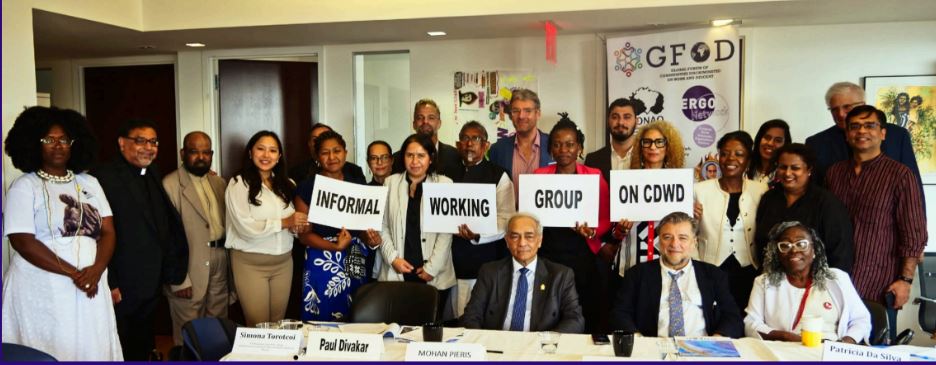Friends of CDWD: Advancing dialogue and action on Communities Discriminated on Work and Descent
World leaders gathered in New York from September 22-26, 2024, to discuss and adopt a Pact for the Future that includes a Global Digital Compact and a Declaration on Future Generations. The Pact covers several themes such as peace and security, sustainable development, climate change, digital cooperation, human rights, gender, youth, and the transformation of global governance.
Against this backdrop, the Global Forum of Communities Discriminated on Work and Descent (GFOD), in collaboration with the Rosa Luxemburg Stiftung (RLS), organized a roundtable with various stakeholders to discuss establishing an Informal Working Group to address the issues faced by Communities Discriminated on Work and Descent (CDWD).
Communities Discriminated on Work and Descent (CDWD), consisting of 270 million individuals, include groups such as the Haratin, Jongo, Mbororos, and Komo in Africa; Quilombolas and Palenques in Latin America; Dalits and Burakumin in Asia; and the Roma community globally. These groups face systemic discrimination based on their ancestral occupations and social status. While there have been sporadic instances of individual representation and acknowledgment, collective recognition of these communities and their unique socio-economic and cultural exclusion remains scarce.
This phenomenon, often rooted in notions of “purity and pollution,” physical marginalization, and endogamy, has been acknowledged by UN independent experts and special procedures mechanisms. However, current international human rights frameworks do not specifically address the unique discrimination faced by CDWD groups. Over the past two decades, stakeholders and civil society organizations have advocated for group-specific norms at the UN to protect human rights and guarantee civil, economic, cultural, social, and political participation for these communities.
The roundtable was attended by key civil society leaders, UN agencies, and ambassadors from various countries. Expressing solidarity were representatives from Oxfam, Civicus, UN Women, and UNFPA, along with HE Ambassador Robert Rae (via video message), HE Ambassador Mohan Peiris, HE Ambassador Ljubomir Frckoski, and leaders from community organizations like CONAQ, ERGO, ADRF, and GFOD Africa. Approximately 28 participants attended the roundtable.
In his video statement, HE Ambassador Robert Rae emphasized the need for equality for CDWD communities and the establishment of mechanisms to address these concerns. HE Ambassador Mohan Peiris stressed the urgency of moving from “mere dialogue to action,” highlighting that liberty and freedom ensure aspirations, citizenship guarantees dignity and respect, and social justice addresses inequalities perpetuating discrimination. He added that ensuring equal rights and opportunities for CDWD communities is vital, and a declaration could serve as a powerful tool for advancing human rights and fostering an equal society.
Marie Elena, Racial Justice Lead at UN Women, and Patricia Da Silva, Program Advisor for the Initiative for People of African Descent at UNFPA, strongly pledged their solidarity and emphasized the need for mechanisms to address the issues faced by CDWD communities.
The roundtable concluded with a decision to take further action at the General Assembly's Third Committee and to form a Group of Friends on the Rights of Communities Discriminated on Work and Descent (CDWD) with committed Member States. Participants from civil society organizations, UN agencies, and affected communities also pledged to continue close collaboration to protect the rights of CDWD groups effectively.
Also Read: Towards an Informal Working Group on the the Rights of Communities Discriminated on Work and Descent


